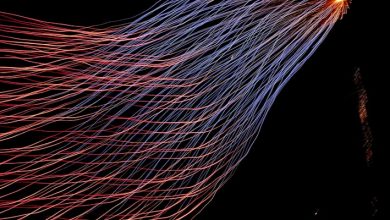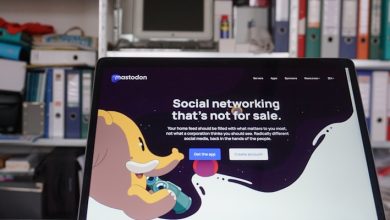How Decentralized Autonomous Organizations are Changing Governance

- Introduction to Decentralized Autonomous Organizations
- The Rise of DAOs in Governance
- Advantages of Decentralized Autonomous Organizations
- Challenges Faced by DAOs in Changing Governance
- Examples of Successful DAOs in Governance
- The Future Impact of DAOs on Traditional Governance Models
Introduction to Decentralized Autonomous Organizations
Decentralized Autonomous Organizations, or DAOs, are revolutionizing the way governance is conducted in various sectors. DAOs are essentially a new form of organization that operates based on a set of smart contracts, without the need for a central authority or middleman. These organizations are governed by their stakeholders and operate on a decentralized network, such as a blockchain.
DAOs are changing the way decisions are made within organizations by allowing for more transparency, efficiency, and inclusivity. With DAOs, stakeholders have a direct say in the decision-making process through voting mechanisms that are built into the smart contracts. This democratic approach to governance ensures that decisions are made collectively, rather than by a select few individuals.
Furthermore, DAOs are enabling new forms of collaboration and innovation by bringing together individuals from around the world to work towards a common goal. Through the use of blockchain technology, DAOs are able to streamline processes, reduce costs, and increase trust among participants. This has the potential to disrupt traditional hierarchical structures and empower individuals to take control of their own governance.
The Rise of DAOs in Governance
Decentralized Autonomous Organizations (DAOs) are on the rise in governance structures around the world. These innovative entities leverage blockchain technology to operate without the need for centralized control, allowing for more transparent and efficient decision-making processes.
One of the key advantages of DAOs in governance is the ability to automate various functions through smart contracts. This eliminates the need for intermediaries and reduces the risk of corruption or manipulation. Additionally, DAOs allow for a more inclusive decision-making process, where all participants have a voice in the direction of the organization.
As DAOs continue to gain popularity, they are challenging traditional governance models and reshaping the way decisions are made. By enabling direct participation and voting rights for all members, DAOs promote a more democratic and decentralized approach to governance.
Furthermore, DAOs are revolutionizing the way resources are allocated and managed within organizations. Through the use of tokenomics and decentralized finance (DeFi) tools, DAOs can streamline budgeting processes and ensure greater financial transparency.
In conclusion, the rise of DAOs in governance represents a paradigm shift towards more democratic, transparent, and efficient decision-making processes. As these entities continue to evolve and expand their influence, we can expect to see a transformation in the way organizations are structured and managed in the future.
Advantages of Decentralized Autonomous Organizations
Decentralized Autonomous Organizations (DAOs) offer numerous benefits that are revolutionizing traditional governance structures. These advantages make DAOs an attractive option for various industries and communities seeking to improve transparency, efficiency, and accountability.
- Increased Transparency: DAOs operate on blockchain technology, ensuring that all transactions and decisions are recorded on a public ledger. This transparency reduces the risk of fraud and corruption, as all members can verify the organization’s activities.
- Enhanced Efficiency: By automating decision-making processes through smart contracts, DAOs can streamline operations and reduce bureaucracy. This efficiency allows for quicker responses to changing circumstances and promotes innovation within the organization.
- Improved Accountability: DAOs rely on consensus mechanisms to make decisions, ensuring that all members have a say in the organization’s direction. This participatory approach fosters a sense of ownership among stakeholders and holds decision-makers accountable for their actions.
- Global Accessibility: As DAOs are decentralized and borderless, they allow individuals from around the world to participate in governance processes. This inclusivity enables diverse perspectives to be considered and promotes a more democratic decision-making structure.
- Resilience to External Interference: Due to their decentralized nature, DAOs are less susceptible to external influence or manipulation. This resilience protects the organization from political pressure, censorship, or other forms of interference that may compromise its autonomy.
Challenges Faced by DAOs in Changing Governance
One of the key challenges faced by decentralized autonomous organizations (DAOs) in changing governance is the lack of clear regulatory frameworks. This ambiguity can make it difficult for DAOs to navigate legal requirements and ensure compliance with existing laws. Additionally, the decentralized nature of DAOs can pose challenges in terms of decision-making processes and accountability. Without a centralized authority to oversee governance changes, DAOs may struggle to implement new policies or adapt to evolving circumstances.
Another obstacle for DAOs in changing governance is the potential for security vulnerabilities. As DAOs rely on smart contracts to execute functions autonomously, any bugs or vulnerabilities in the code can be exploited by malicious actors. This can compromise the integrity of the governance process and undermine trust in the organization. DAOs must therefore prioritize security measures to protect against potential threats and ensure the integrity of their governance mechanisms.
Furthermore, DAOs may face challenges in terms of scalability and efficiency when changing governance. As the number of participants in a DAO grows, decision-making processes can become more complex and time-consuming. This can lead to delays in implementing governance changes and hinder the organization’s ability to respond quickly to new challenges or opportunities. DAOs must therefore find ways to streamline their governance processes and ensure that decisions are made efficiently and effectively.
In conclusion, while DAOs have the potential to revolutionize governance structures, they also face a number of challenges in changing governance. From regulatory uncertainties to security vulnerabilities and scalability issues, DAOs must navigate a range of obstacles to effectively adapt their governance mechanisms. By addressing these challenges head-on and implementing robust strategies for governance change, DAOs can maximize their impact and drive meaningful innovation in the field of decentralized governance.
Examples of Successful DAOs in Governance
Several Decentralized Autonomous Organizations (DAOs) have successfully revolutionized governance in various industries. These examples demonstrate the potential of DAOs to streamline decision-making processes and increase transparency in governance.
- The Aragon Network is a prime example of a successful DAO in governance. It provides tools for creating and managing decentralized organizations on the Ethereum blockchain. The Aragon Network allows for voting on proposals, making decisions, and allocating resources without the need for traditional hierarchical structures.
- Another notable DAO is DAOstack, which offers a platform for decentralized governance through collective decision-making. DAOstack enables users to create and manage DAOs, vote on proposals, and govern organizations in a transparent and efficient manner.
- MolochDAO is a DAO specifically designed for funding Ethereum projects. It operates on the principle of pooling resources from members to fund projects that benefit the Ethereum ecosystem. MolochDAO showcases how DAOs can be used to allocate resources effectively in a decentralized manner.
These successful examples of DAOs in governance highlight the transformative potential of decentralized decision-making processes. By leveraging blockchain technology and smart contracts, DAOs are changing the landscape of governance and opening up new possibilities for transparent and efficient organizational structures.
The Future Impact of DAOs on Traditional Governance Models
The future impact of Decentralized Autonomous Organizations (DAOs) on traditional governance models is poised to be significant. As DAOs continue to gain traction in various industries, they are challenging the conventional top-down approach to decision-making and governance. By leveraging blockchain technology and smart contracts, DAOs have the potential to revolutionize how organizations are structured and operated.
One of the key ways in which DAOs are changing governance is by enabling greater transparency and accountability. With DAOs, decision-making processes are often recorded on the blockchain, making them immutable and accessible to all members. This level of transparency can help build trust among stakeholders and reduce the risk of corruption or manipulation.
Moreover, DAOs are also promoting a more inclusive form of governance, allowing individuals from diverse backgrounds to participate in decision-making processes. Through token-based voting mechanisms, DAO members can have a direct say in the direction of the organization, regardless of their social status or wealth. This democratization of governance can lead to more equitable outcomes and better representation of the community.
Another significant impact of DAOs on traditional governance models is the potential for increased efficiency and cost-effectiveness. By automating decision-making processes through smart contracts, DAOs can streamline operations and reduce the need for intermediaries. This can result in faster decision-making, lower operational costs, and greater agility in responding to changing market conditions.
Overall, the rise of DAOs is reshaping the landscape of governance by introducing new paradigms that prioritize transparency, inclusivity, and efficiency. While traditional governance models may still have their place, it is clear that DAOs are here to stay and will continue to exert influence on how organizations are structured and governed in the future.



